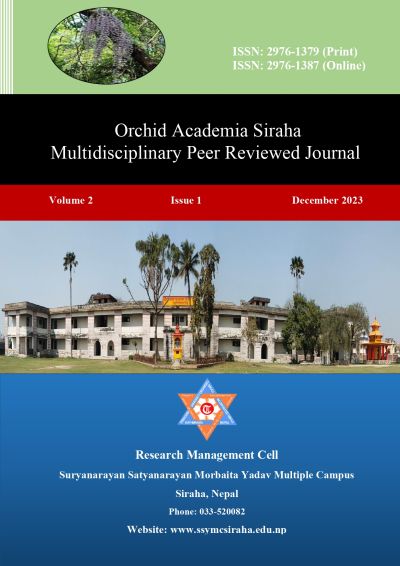Transforming Food, Embracing Inclusivity: Nepal's Journey towards Sustainable Food Systems
DOI:
https://doi.org/10.3126/oas.v2i1.65603Keywords:
sustainable food system, inclusivity, transformationAbstract
This study explored Nepal's dynamic food practices, examining the interplay between traditional rural and evolving urban contexts. The country's food system harmoniously integrates age-old agricultural wisdom with the changing demands of urbanization. In rural landscapes, communities craft a resilient tapestry using diverse crops, agroecological practices, and a profound respect for nature, ensuring steadfast food security even in challenging environments. Conversely, urbanization introduces convenience through supermarkets and processed foods, albeit with associated costs such as escalating health issues, food waste, and social inequalities. To bridge these disparities, a focus on inclusivity and resilience is imperative. Strategies include empowering rural women, investing in infrastructure, and safeguarding traditional knowledge for sustainable food security. Urban food policies should emphasize local markets, encourage healthy choices, and minimize waste. In essence, navigating Nepal's food system transformation necessitates a delicate balance between tradition and adaptation, aspiring towards a future where comprehensive food security and well-being flourish for all.
Downloads
Downloads
Published
How to Cite
Issue
Section
License
Copyright (c) 2023 RMC, SSMYMC, Siraha

This work is licensed under a Creative Commons Attribution 4.0 International License.
This license allows reusers to distribute, remix, adapt, and build upon the material in any medium or format, so long as attribution is given to the creator. The license allows for commercial use.




